Which Essential Oils Do Not Contain Linalool
Curious about linalool? Wondering why it’s a popular ingredient in essential oils?
This article explores the benefits of linalool, including its anti-inflammatory, antibacterial, and antioxidant properties.
Find out which essential oils contain linalool, such as lavender, bergamot, and basil oils. And discover which essential oils do not contain linalool, like eucalyptus and lemon oils.
Stay tuned to learn more about this versatile and beneficial compound!
Key Takeaways:
What is Linalool?
Linalool is a naturally occurring terpene alcohol found in many flowers and spice plants. It is commonly used as a fragrance ingredient in various products, especially in essential oils. Linalool has gained attention due to its potential to cause allergic reactions in individuals with sensitivities.
Historically, linalool has been used for its calming and relaxing properties, making it a popular choice in aromatherapy. Its pleasant floral scent can be found in lavender, rosewood, and basil.
For those with allergies, linalool may trigger skin reactions such as dermatitis or hives. This compound can also exacerbate respiratory issues in sensitive individuals.
Why is Linalool Used in Essential Oils?
Linalool is used in essential oils primarily for its natural fragrance and therapeutic properties. It adds a pleasing scent to the oils and is believed to offer various benefits to users. Its inclusion can sometimes lead to contact dermatitis disasters for those allergic to linalool.
Derived from various plants like lavender and basil, linalool is known for its calming and relaxing effects on the mind and body. This compound possesses anti-inflammatory and antimicrobial properties, making it a popular choice in aromatherapy practices.
While generally considered safe, individuals with sensitive skin may experience adverse reactions, such as redness, itching, or skin irritation, when exposed to high concentrations of linalool. Seeking guidance from a qualified dermatologist can help in identifying potential triggers and managing any skin sensitivities effectively.
What are the Benefits of Linalool?
Linalool offers a range of benefits, including anti-inflammatory, antibacterial, and antioxidant properties. These qualities make it a valuable ingredient in various skincare products and essential oils, providing users with potential therapeutic effects.
Its anti-inflammatory properties can help soothe irritated skin, making it ideal for those dealing with conditions like acne or eczema. The antibacterial nature of linalool can assist in fighting off harmful bacteria that may cause skin infections or breakouts.
The antioxidant attributes in linalool play a crucial role in protecting the skin from free radical damage, promoting a more youthful and vibrant complexion. By incorporating skincare products enriched with linalool, individuals may experience not only improved skin health but also enhanced efficacy in overall skincare routines.
Anti-inflammatory Properties
One of the notable benefits of linalool is its anti-inflammatory properties, which can help soothe skin irritations and reduce redness or swelling. When incorporated into essential oils, linalool contributes to their therapeutic effects on inflammatory skin conditions.
Linalool, a natural chemical compound found in various plants, such as lavender and basil, possesses remarkable anti-inflammatory characteristics that make it a sought-after ingredient in skincare products. Its ability to calm skin inflammation can be particularly beneficial for individuals dealing with conditions like eczema, psoriasis, or acne.
Linalool’s soothing properties can aid in promoting overall skin health by reducing oxidative stress and enhancing the skin’s natural barrier function. This makes it a valuable component in formulations aimed at nurturing and revitalizing the skin.
Antibacterial Properties
Linalool exhibits antibacterial properties that can help combat harmful bacteria on the skin’s surface. When used in essential oils, linalool contributes to their ability to cleanse and protect the skin from bacterial infections, promoting healthier skin.
For example, tea tree oil, which contains linalool, is renowned for its antimicrobial effects. Its application can assist in soothing skin irritations and preventing acne breakouts by inhibiting the growth of acne-causing bacteria. Similarly, lavender oil, another source of linalool, possesses antibacterial properties that can aid in reducing inflammation and promoting overall skin healing.
Antioxidant Properties
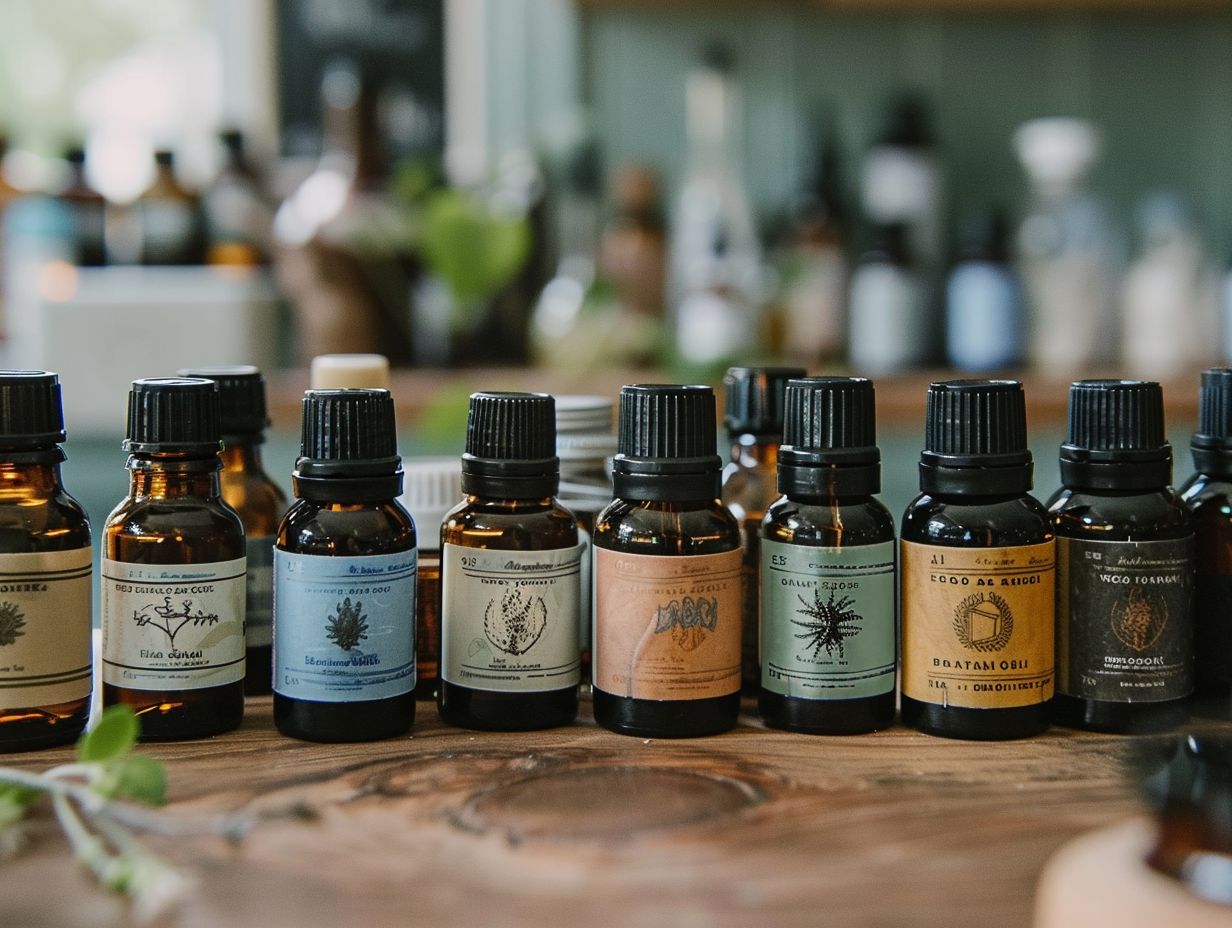
Antioxidants act as your skin’s shield, combating the harmful effects of pollution, UV rays, and other external aggressors that can accelerate skin aging.
Linalool, with its antioxidant abilities, plays a crucial role in neutralizing these damaging free radicals, thereby preserving your skin’s vitality and radiance.
When incorporated into skincare products, essential oils rich in linalool help in maintaining skin health by preventing premature aging signs and supporting the skin’s natural rejuvenation process.
Which Essential Oils Contain Linalool?
Several essential oils contain linalool as a prominent component, with popular examples being lavender, bergamot, basil, coriander, and rosewood oils. These oils not only offer aromatic benefits but also harness the therapeutic properties of linalool.
These essential oils are prized for their diverse scents and healing properties. Lavender oil, recognized for its calming aroma, contains linalool known for its stress-relief and sleep-promoting effects. Bergamot oil, with its citrusy and floral notes, utilizes linalool to enhance mood and reduce anxiety.
Basil oil, with its herbaceous and uplifting fragrance, contains linalool that contributes to its antibacterial and anti-inflammatory properties. Coriander oil, featuring a warm and spicy scent, uses linalool to aid digestion and reduce muscle discomfort.
Rosewood oil, renowned for its sweet and woody aroma, contains linalool, which is beneficial for skin health and emotional well-being.
Lavender Essential Oil
Lavender essential oil is a popular choice known for its calming aroma and therapeutic effects. It contains linalool as a significant component, contributing to its relaxing scent and potential benefits for stress relief and skin care.
Not only is lavender essential oil cherished for its relaxing fragrance, but its properties extend into the realms of aromatherapy and skincare. The linalool in lavender oil is a naturally occurring compound that is widely praised for its tranquilizing qualities, making it a top pick for those seeking peace and tranquility. In aromatherapy, the oil is often used in diffusers to create a serene ambiance that helps alleviate stress and promote relaxation. This versatile oil finds its way into skincare products, where its soothing properties can help with various skin conditions, from dryness to irritation.
Bergamot Essential Oil
Bergamot essential oil is renowned for its citrusy fragrance and uplifting properties. Linalool found in bergamot oil contributes to its aromatic profile and potential benefits for mood enhancement and skin rejuvenation.
When diffused, the citrusy aroma of bergamot oil can create a refreshing and energizing atmosphere, perfect for boosting spirits and promoting relaxation. Bergamot oil’s antibacterial and anti-inflammatory properties make it a popular choice in skincare, helping to combat acne, soothe irritation, and promote a clear complexion.
Basil Essential Oil
Basil essential oil is known for its fresh and herbaceous aroma, often used for its invigorating properties. The linalool present in basil oil adds to its unique scent profile and may offer benefits such as mental clarity and respiratory support.
Basil essential oil, derived from the popular herb that is commonly found in many culinary dishes, carries with it a delightful fragrance that can uplift the spirits and calm the mind. This oil is prized not only for its scent but also for its potential therapeutic effects. Linalool, a compound found in basil oil, is responsible for enhancing its aromatic qualities, making it a popular choice in aromatherapy practices.
Coriander Essential Oil
Coriander essential oil features a warm and spicy aroma that is both comforting and stimulating. Linalool in coriander oil contributes to its fragrance profile and may offer benefits like relaxation and digestive support.
Known for its fresh, citrusy undertones, coriander oil is often utilized in aromatherapy to promote a sense of calmness and inner peace. The properties of this essential oil extend beyond just its scent it is believed to have a soothing effect on the mind and body. When diffused or applied topically, the aromatic characteristics of coriander oil can alleviate stress, creating a tranquility-inducing atmosphere in your surroundings.
Rosewood Essential Oil
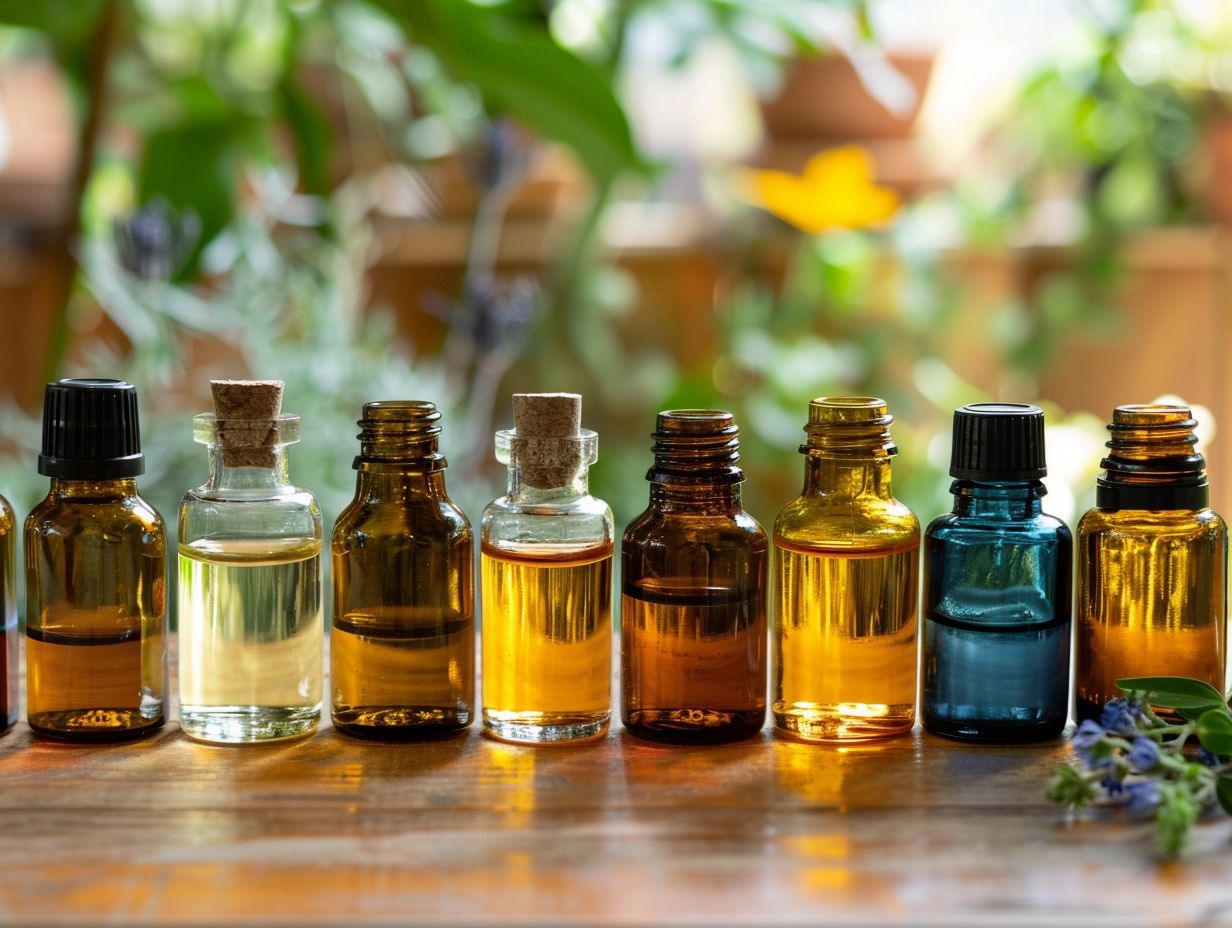
Rosewood essential oil is prized for its sweet and woody scent that promotes emotional balance and relaxation. Linalool present in rosewood oil enhances its aromatic profile and may offer benefits for stress relief and skincare.
When diffused, the soothing aroma of rosewood oil can create a calming atmosphere, perfect for unwinding after a long day. Its versatile properties make it a popular choice in aromatherapy practices, where it is often used to alleviate anxiety and uplift the mood. Due to its moisturizing and rejuvenating abilities, rosewood oil is a favored ingredient in skincare products, helping to hydrate and rejuvenate the skin, making it a suitable choice for individuals looking to enhance their skincare routine with natural remedies.
Which Essential Oils Do Not Contain Linalool?
Certain essential oils are linalool-free, making them suitable alternatives for individuals with linalool allergies. Examples include eucalyptus, lemon, peppermint, tea tree, and frankincense oils, which offer distinct fragrances and properties without linalool content.
These linalool-free oils are ideal for those sensitive to this specific compound, found in many essential oils and known to cause skin irritations or allergic reactions in some individuals. Eucalyptus oil, for instance, is renowned for its invigorating scent and potential respiratory benefits, making it a popular choice among those seeking a refreshing and cleansing aroma without linalool.
Lemon oil, with its zesty and uplifting fragrance, is often used to promote a sense of clarity and focus, especially in aromatherapy blends. Peppermint oil, on the other hand, is prized for its cooling sensation and digestive support, offering a minty aroma without linalool that many find soothing.
Tea tree oil, known for its antibacterial and antifungal properties, serves as a versatile option for skincare and home cleaning routines without the presence of linalool. Frankincense oil, valued for its grounding and meditative qualities, provides a woody and resinous aroma perfect for relaxation and spiritual practices.
Eucalyptus Essential Oil
Eucalyptus essential oil is a refreshing oil known for its cooling sensation and respiratory benefits. Being linalool-free, eucalyptus oil is a suitable choice for those with linalool allergies, offering a unique aroma and potential wellness advantages.
One of the distinguishing features of linalool-free eucalyptus essential oil is its ability to provide a gentle, yet invigorating cooling effect when applied topically or diffused. This oil is often used in aromatherapy to help clear the sinuses and support healthy breathing. Its camphoraceous scent is both rejuvenating and soothing, making it a popular choice for massage oils and inhalants. The absence of linalool in this variant ensures that individuals sensitive to this compound can still enjoy the benefits of eucalyptus oil without any adverse reactions.
Lemon Essential Oil
Lemon essential oil is renowned for its fresh and citrusy scent that uplifts the mood and energizes the senses. With no linalool content, lemon oil is a safe choice for individuals allergic to linalool, offering a bright and invigorating fragrance.
Free from linalool, this citrus oil is perfect for blending with other essential oils like lavender or peppermint for a customized aroma. Its linalool-free composition makes it a top pick for those looking for a pure and natural fragrance option without worrying about potential sensitivities or allergic reactions. Plus its pleasing fragrance, lemon essential oil is also known for its mood-boosting properties, making it an ideal choice for diffusing in living spaces or adding to skincare products for a revitalizing experience.
Peppermint Essential Oil
Peppermint essential oil is known for its cooling and invigorating properties that promote alertness and clarity. Free from linalool, peppermint oil offers a minty-fresh aroma and potential benefits for mental focus and respiratory support.
Without linalool, peppermint oil is particularly favored by those sensitive to this compound, making it a popular choice for individuals seeking the refreshing effects of peppermint without the risk of skin irritation.
The absence of linalool in peppermint oil enhances its pure cooling sensation, allowing for a more intense and pronounced feeling of relief when applied topically or diffused for aromatherapy purposes.
Tea Tree Essential Oil
Tea tree essential oil is renowned for its purifying properties and skin-soothing effects. With no linalool, tea tree oil is a beneficial choice for those seeking natural solutions for skin concerns, offering a fresh and cleansing aroma.
People often turn to tea tree oil to address various skin issues due to its powerful antibacterial and antifungal properties. This linalool-free formulation makes it a gentler option, reducing the risk of potential sensitivities for individuals with fragrance allergies. Its ability to cleanse pores deeply and promote skin clarity has made it a popular ingredient in skincare products.
Truly a versatile oil, tea tree with no linalool can be used in homemade cleansers, toners, and spot treatments, providing a natural and effective alternative for maintaining clear and healthy skin.
Frankincense Essential Oil
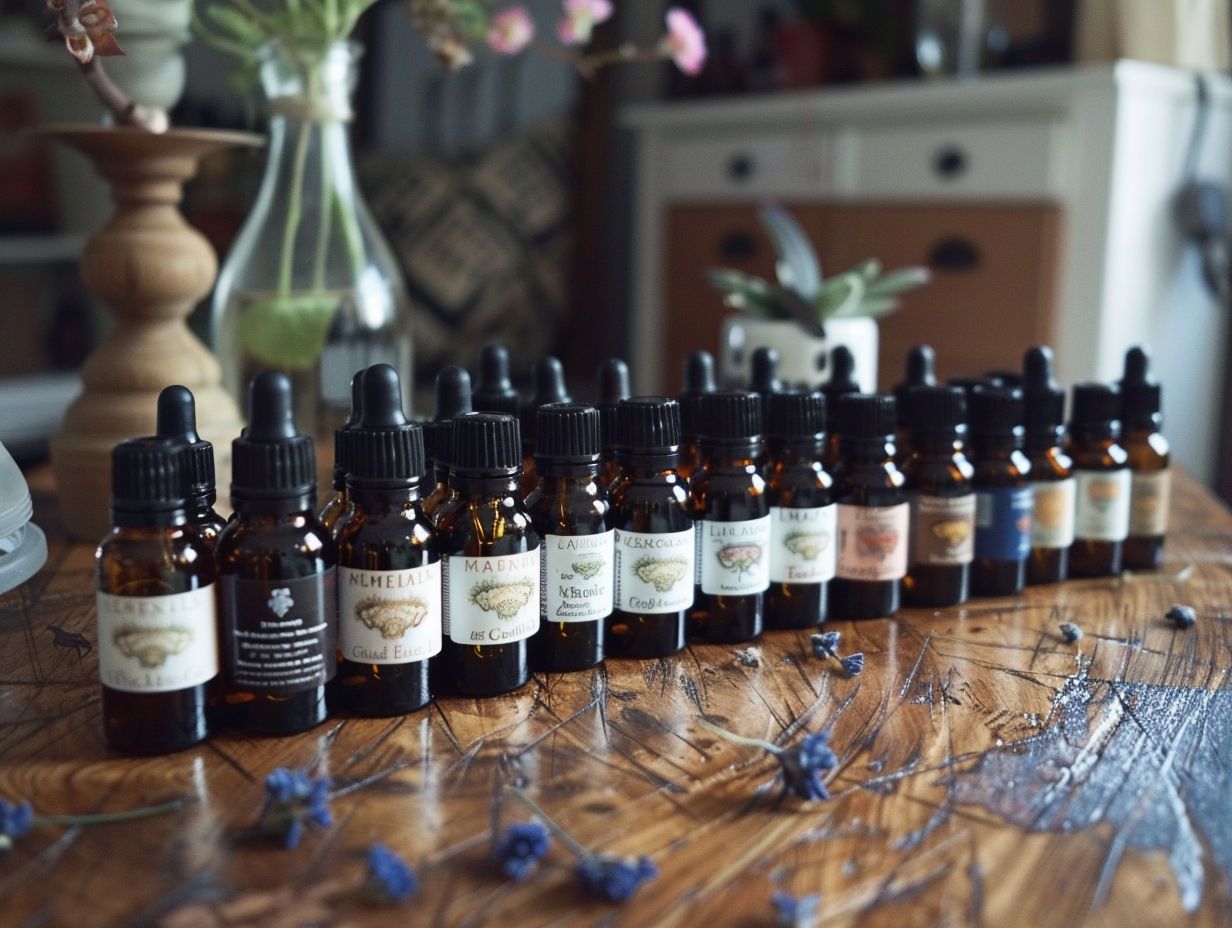
Frankincense essential oil is prized for its earthy and resinous aroma that promotes relaxation and spiritual well-being. Being linalool-free, frankincense oil offers a grounding scent and potential benefits for meditation and skincare.
Many people turn to frankincense essential oil for its calming properties, using it in diffusers or diluted with carrier oils for massages. Its soothing qualities make it a popular choice for enhancing mindfulness practices and creating a tranquil atmosphere. In skincare routines, linalool-free frankincense oil is favored for its nourishing and rejuvenating effects on the skin, helping to reduce the appearance of blemishes and imperfections.
Frequently Asked Questions
Which Essential Oils Do Not Contain Linalool?
There are several essential oils that do not contain linalool, including tea tree, eucalyptus, and peppermint oils.
Can I Use Essential Oils Without Linalool?
Yes, if you are looking to avoid linalool, there are plenty of essential oils that do not contain this ingredient.
Why Would Someone Want to Avoid Linalool in Essential Oils?
Linalool is a common allergen and can cause skin irritation in some individuals. Therefore, some people may choose to avoid it in their essential oils.
What Are Some Other Essential Oils That Do Not Contain Linalool?
Other essential oils that do not contain linalool include bergamot, lemon, and grapefruit oils.
Are Essential Oils Without Linalool Less Effective?
No, linalool is not a necessary component for the effectiveness of essential oils. There are many other beneficial compounds in essential oils that can provide their therapeutic properties.
Can I Still Enjoy the Aroma of Essential Oils Without Linalool?
Absolutely! There are many essential oils that have beautiful and unique scents without containing linalool. You can still experience the benefits of aromatherapy without this particular ingredient.

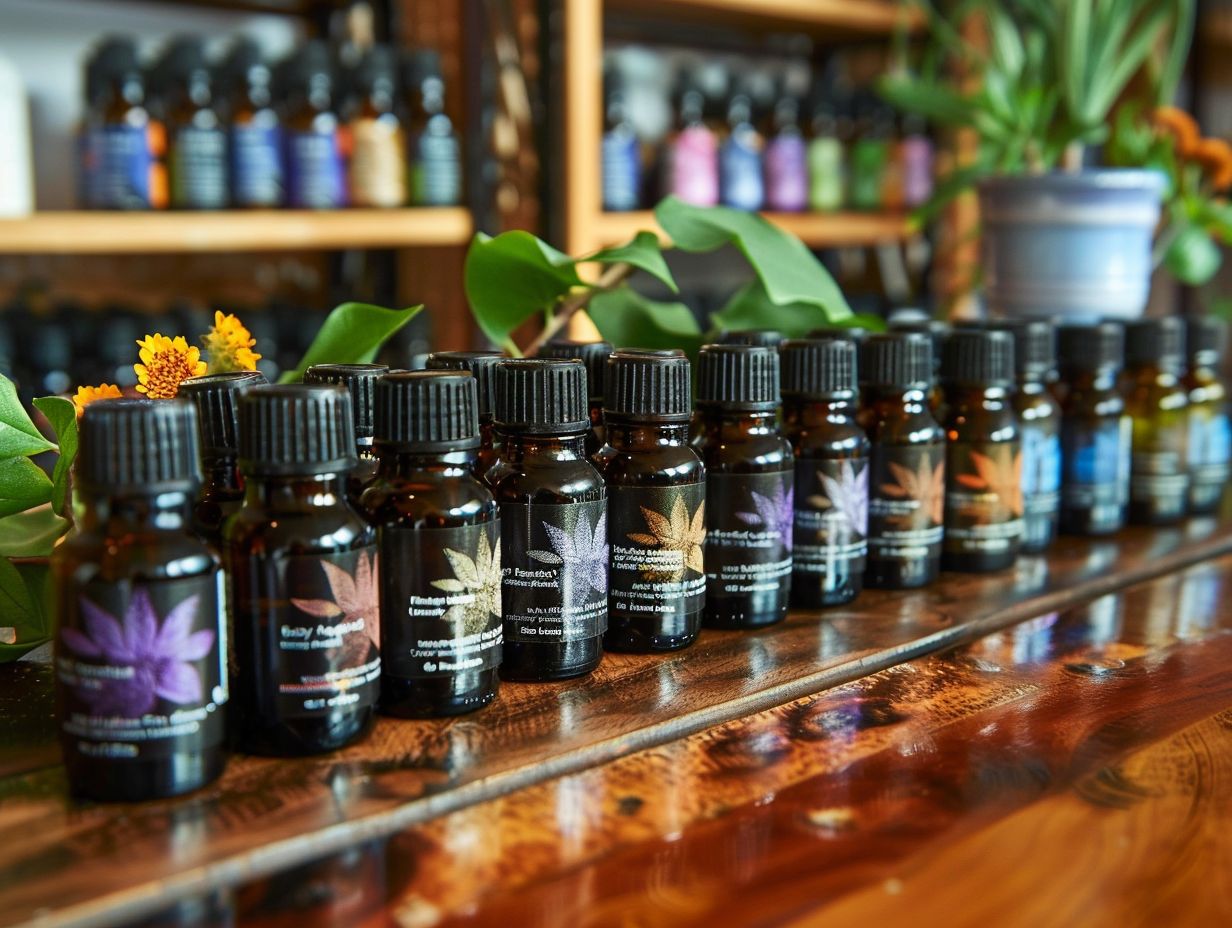
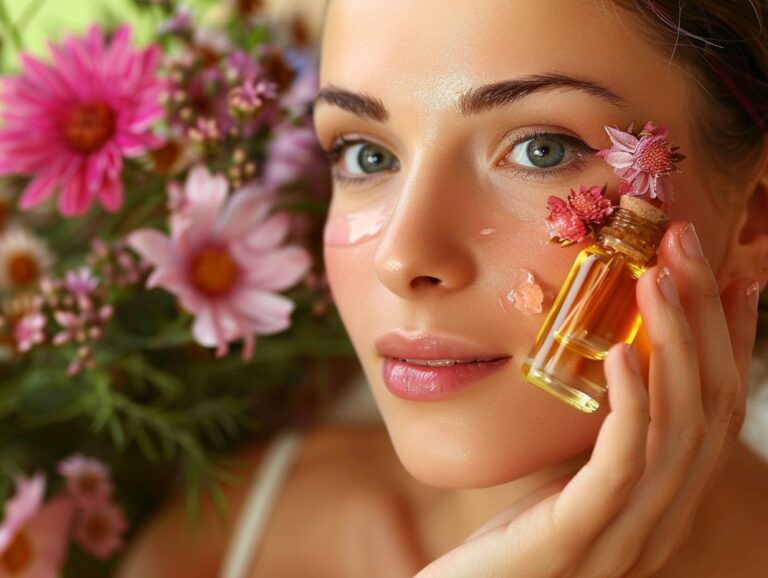
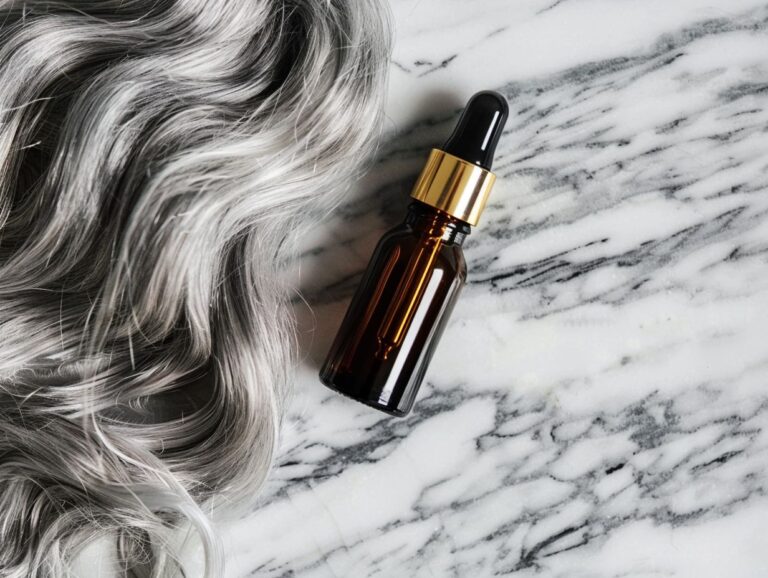




One Comment